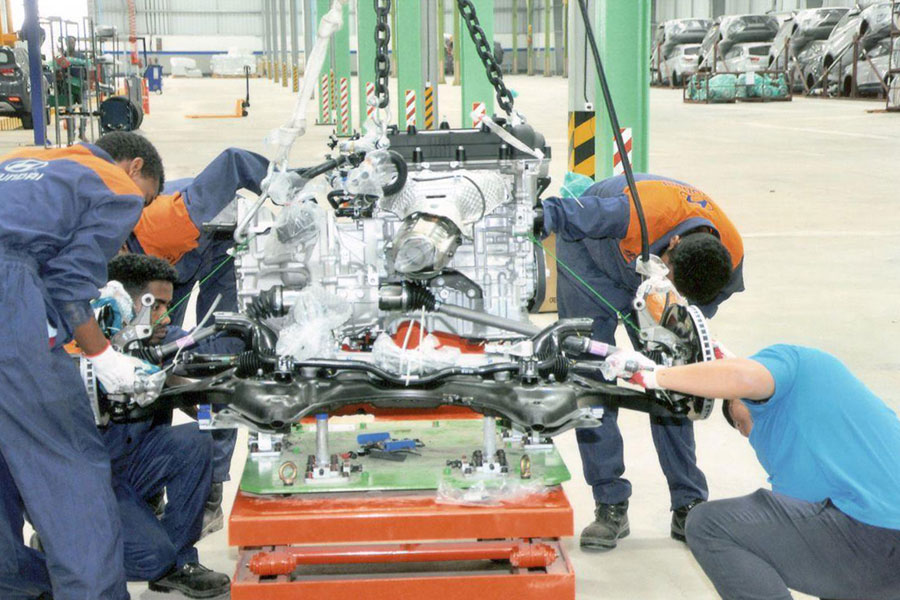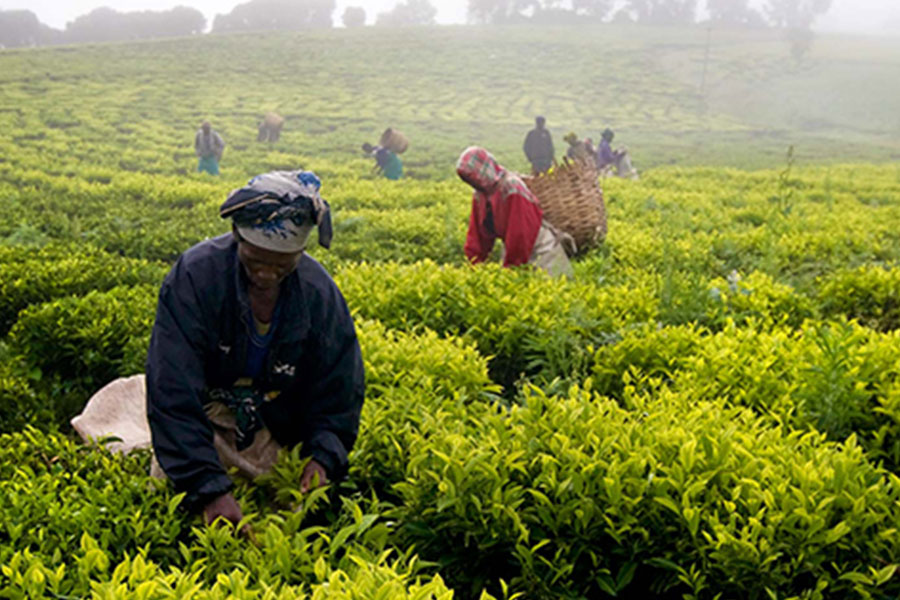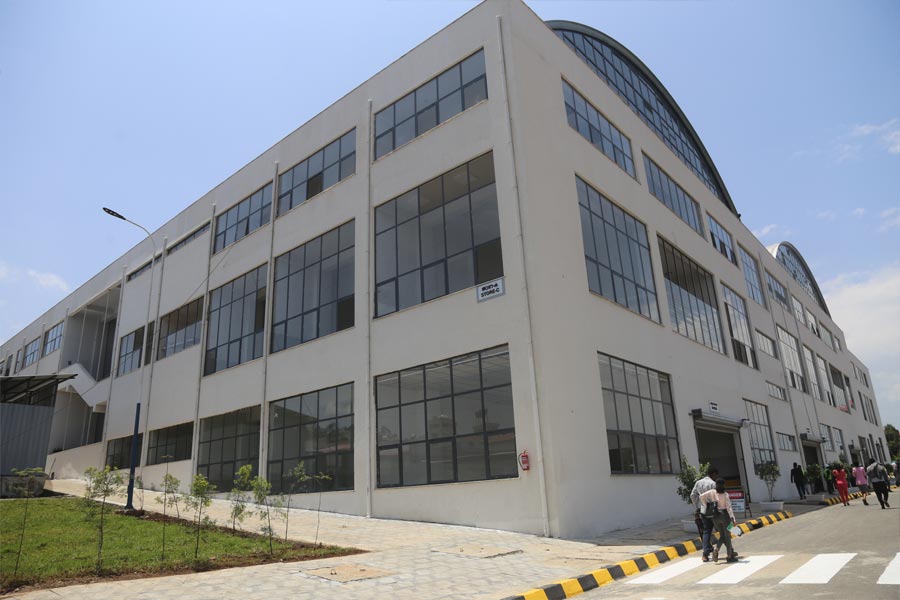
Radar | Apr 04,2020
A national centre archiving soil samples for agricultural activities, including identifying the types of fertiliser and chemicals suitable for particular plots, has gone operational.
The National Soil Archive Centre has been built on half a hectare plot near the Koye Fiche condominium site in Addis Abeba's Akaki-Qality District. Semeneh Asaye General Contractor built the centre for 4.6 million Br under the supervision of the Agricultural Transformation Institute(ATI).
The Centre is an extension of the Ethiopian Soil Information System (EthioSIS) project under the Agricultural Transformation Institute (ATI), launched a decade ago with an outlay of five million dollars. Soil mapping is a critical component of the project, as most farmers have inadequate information on what type of crops to sow and the varieties of inputs to use.
"It's basic and necessary," said Kiflu Gudeta, EARI's soil mapping team leader. "It'll push the sector one step forward and boost productivity."
He believes the Centre will ease soil research procedures. Previously, samples were kept in insufficient storage at the Agriculture Ministry, complicating the process and risking skewed results.
Officials of the Agricultural Transformation Institute (ATI) will hand over the centre to the Ministry. Mandefro Nigussie (PhD), chief executive officer (CEO), requested the Ministry's officials to take over the archive last week.
"We've all the necessary resources but are short in productivity," said Mandefro. "We're ready to hand the Centre over."
Mandefro, who studied genetics and plant breeding, says providing reliable and timely information about soil fertility is vital to apply chemical fertilisers and developing intelligent agricultural policies. Before he was appointed to his current job, he had various responsibilities, including as a state minister for agriculture and a director general of the Ethiopian Institute of Agricultural Research.
He took the helm at the former Agricultural Transformation Agency (ATA), following the departure of Khalid Bomba (PhD), its founding CEO, two years ago. Initially funded by the Gates Foundation, the Institute has come a long way since its founding in 2010 under Khalid. It has developed over 250 strategies, including for malt barley. It implemented 48 projects, including its flagship programme on soil mapping.
Lemma Wogi (PhD), assistant professor of soil science at Haromaya University, agrees that the Centre has the potential to cut the time and resources wasted on soil research projects. However, he challenged the assertion that the absence of a soil archive could be the reason for low productivity.
Approximately 80,000 soil samples collected from 740 weredas are stored in the archive.
Since 2015, experts have gathered data about soil fertility levels across the country, employing remote sensing satellite technology. Over 100,000 soil samples collected from 18,000 rural kebeles were analysed, and 28 soil groups, with 18 classified as dominant, have been identified.
Having published the soil fertility status and fertiliser recommendation atlases, the federal government handed the map to six regional states; whereas, maps for the Benishangul-Gumuz, Somali, and Afar regional states are still under development.
CSM Technologies, an Indian firm, and its local partner, Africom Technologies Plc, recently developed a national soil database system for 333,000 dollars. The duo were among 13 companies bidding after the Institute floated an international tender four years ago. The Indian company set foot in Ethiopia a decade ago after securing a 3.5 million Br contract to develop software to automate the wealth registration of federal and regional officials, contracted by the Federal Ethics & Anti-Corruption Commission.
PUBLISHED ON
[ VOL
, NO
]

Radar | Apr 04,2020

Fortune News | Feb 16,2019

Radar | Oct 26,2019

Radar | Mar 20,2021

Fortune News | Aug 13,2022

Fortune News | Nov 21,2018

Fortune News | Feb 24,2024

Radar | Apr 16,2022

Fortune News | Jan 15,2022

Fortune News | Dec 05,2018

Feb 24 , 2024 . By MUNIR SHEMSU
Abel Yeshitila, a real estate developer with a 12-year track record, finds himself unable to sell homes in his latest venture. Despite slash...

Feb 10 , 2024 . By MUNIR SHEMSU
In his last week's address to Parliament, Prime Minister Abiy Ahmed (PhD) painted a picture of an economy...

Jan 7 , 2024
In the realm of international finance and diplomacy, few cities hold the distinction that Addis Abeba doe...

Sep 30 , 2023 . By AKSAH ITALO
On a chilly morning outside Ke'Geberew Market, Yeshi Chane, a 35-year-old mother cradling her seven-month-old baby, stands amidst the throng...

May 2 , 2024
For successive generations of Ethiopia's tax authorities, the chore of tax collection...

Apr 27 , 2024
The Prosperity Party (PP) - Prosperitians - is charting a course through treacherous...

Apr 20 , 2024
In a departure from its traditionally opaque practices, the National Bank of Ethiopia...

Apr 13 , 2024
In the hushed corridors of the legislative house on Lorenzo Te'azaz Road (Arat Kilo)...